The Expectation Effect, Montessori, and Batman
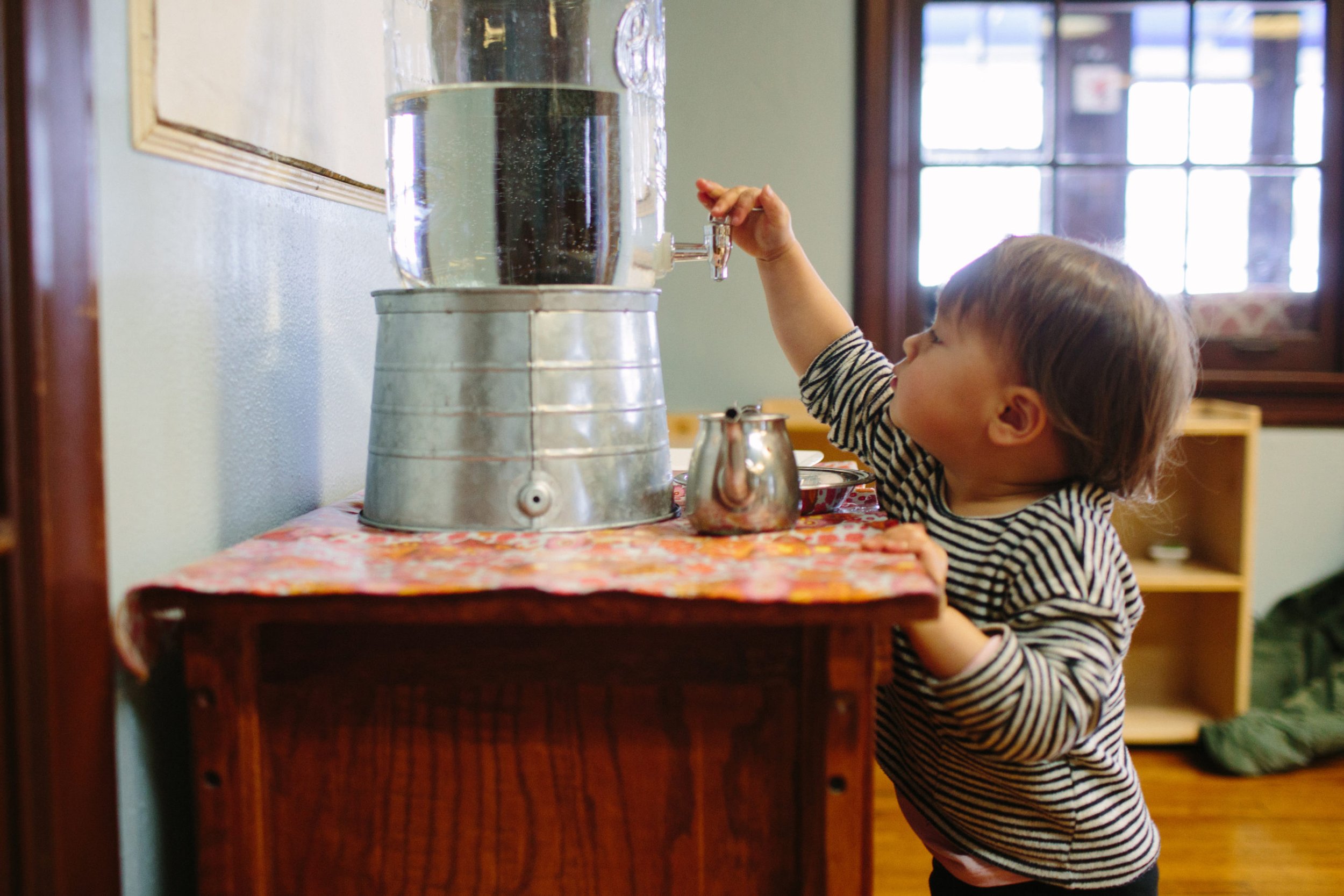
Children are as independent as you expect them to be. Dr. Maria Montessori
Shortly after my daughter started at Villa di Maria at three years old, I found myself explaining why we chose Montessori to a family member who was plainly critical of our choice. I started by telling him all the reasons that jumped to my mind as relatable, reasons that would, frankly, move us through the conversation and onto other topics—I went to a Montessori school myself, the beautiful campus and classrooms, the hands-on learning, the outdoor time... and my favorite, Montessori does not underestimate what children can do and encourages them to learn and grow and do independently. In that conversation I gave the example of vegetable cutting—a favorite task of many a child in a Montessori Children's House.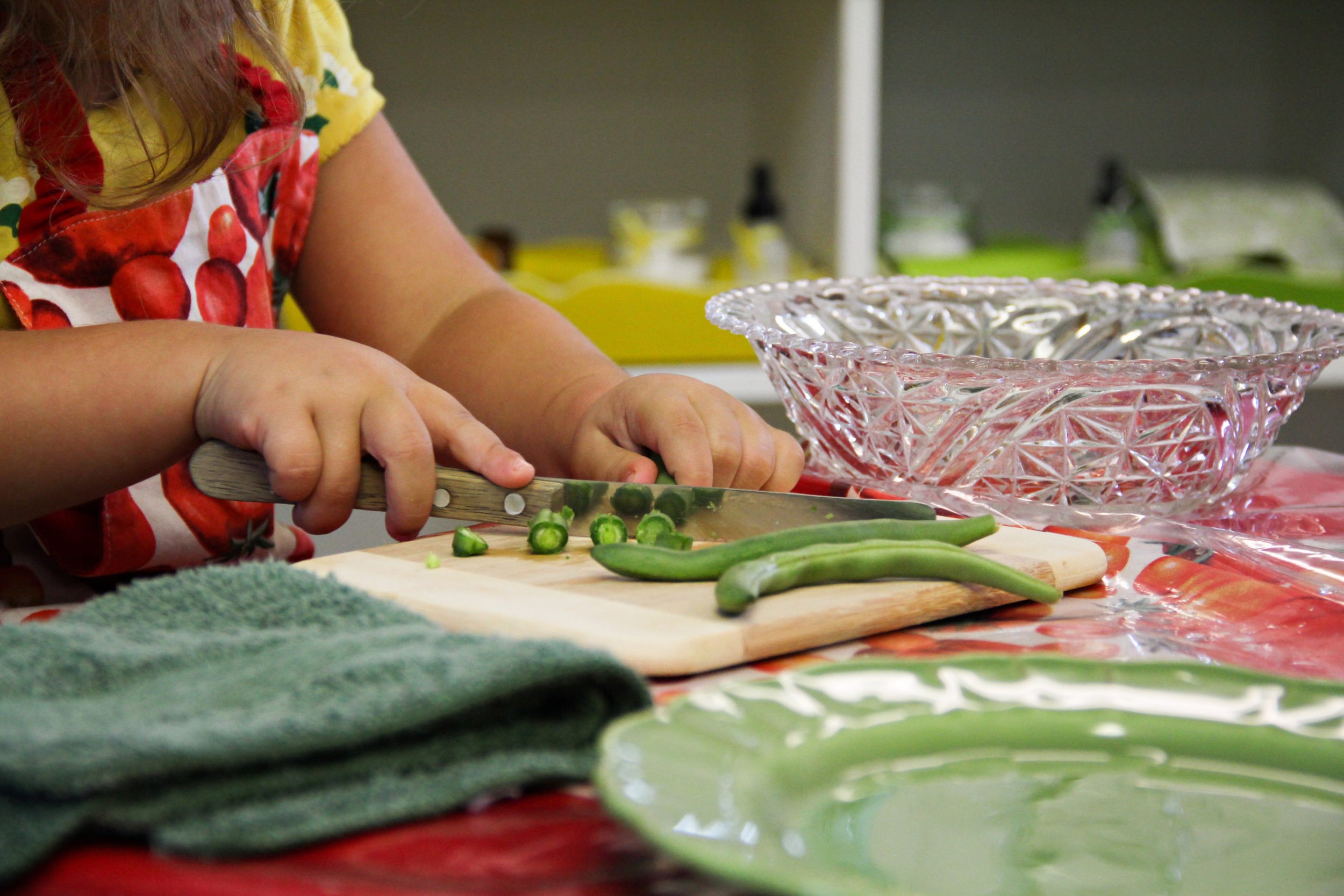
 And that's when I was reminded that the notion that a child can do things independently—or even should do things independently—is not universal. The family member was upset by the idea that a three-year old would use a knife. "Why in the world," he asked (and I am paraphrasing from memory), "would it matter if a little kid used a knife? Why would you waste time teaching that? It will take forever, and she's just going to cut herself. No three-year old needs to use a knife.""It's not about the knife!" and "Don't underestimate my child!" was what I wanted to say (shout). But I didn't, because while I knew intuitively the importance of a child's ability to complete tasks like vegetable cutting independently, I could not, right then, articulate the answers.
And that's when I was reminded that the notion that a child can do things independently—or even should do things independently—is not universal. The family member was upset by the idea that a three-year old would use a knife. "Why in the world," he asked (and I am paraphrasing from memory), "would it matter if a little kid used a knife? Why would you waste time teaching that? It will take forever, and she's just going to cut herself. No three-year old needs to use a knife.""It's not about the knife!" and "Don't underestimate my child!" was what I wanted to say (shout). But I didn't, because while I knew intuitively the importance of a child's ability to complete tasks like vegetable cutting independently, I could not, right then, articulate the answers.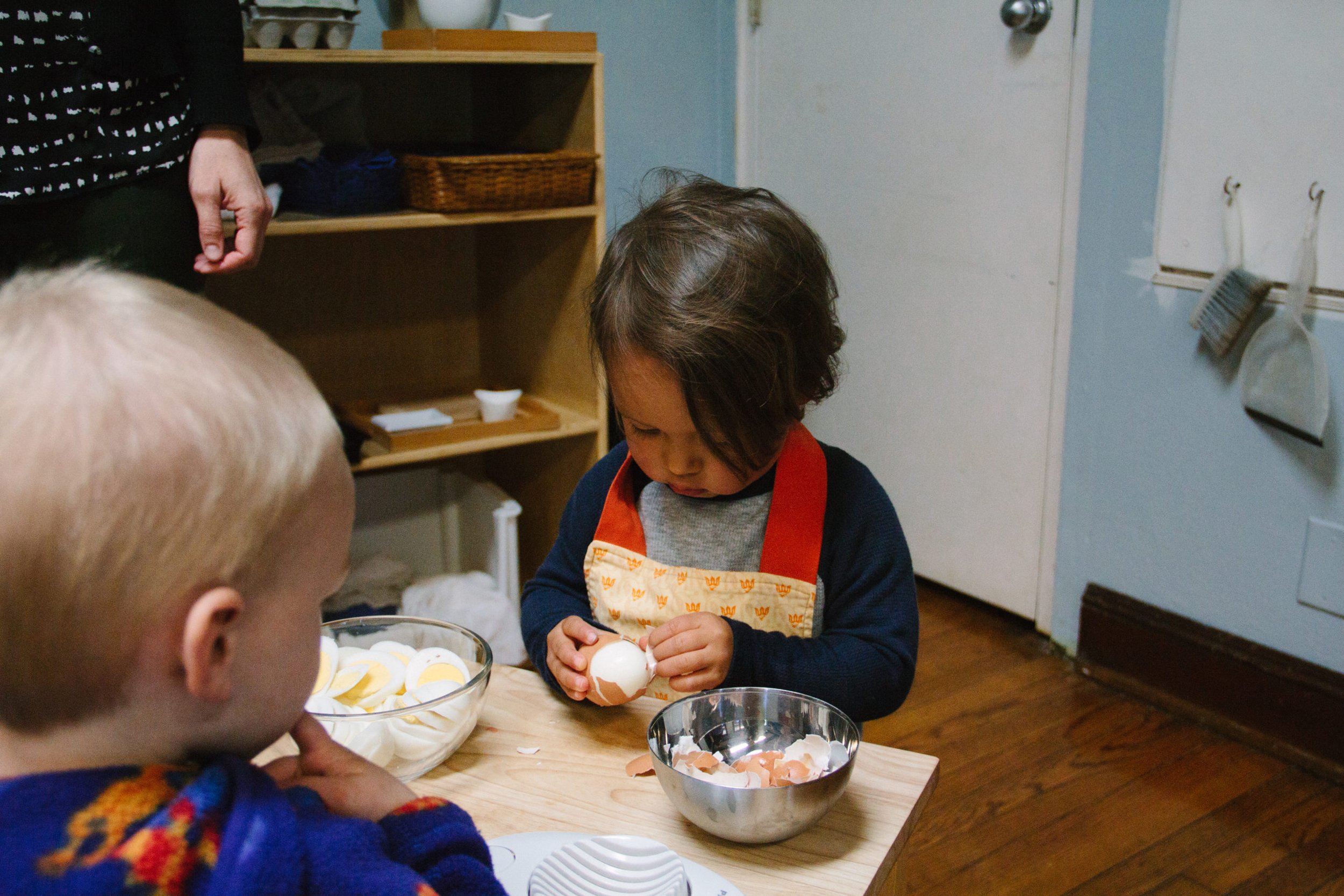 Which brings me to what might seem like a hard left turn: a 2015 episode of the podcast Invisibilia called "How to Become Batman." The episode is about a behavioral/psychological phenomenon called the Expectation Effect, also known as the Pygmalion Effect, which shows that our expectations of others can shape their behaviors.There are quite a few resources out there about the Expectation Effect from the realms sociology and psychology and Montessori pedagogy. I've listed some in the reference and resource list below. But I want to focus on "How to Become Batman" because it contains what I think is a perfect example of how the expectations we set for our children can shape what they are actually able to achieve, for better or worse.
Which brings me to what might seem like a hard left turn: a 2015 episode of the podcast Invisibilia called "How to Become Batman." The episode is about a behavioral/psychological phenomenon called the Expectation Effect, also known as the Pygmalion Effect, which shows that our expectations of others can shape their behaviors.There are quite a few resources out there about the Expectation Effect from the realms sociology and psychology and Montessori pedagogy. I've listed some in the reference and resource list below. But I want to focus on "How to Become Batman" because it contains what I think is a perfect example of how the expectations we set for our children can shape what they are actually able to achieve, for better or worse.
When you lighten someone's load, you don't allow them to expand. Dan Norris, Vermont Association for the Blind
In the episode we meet two men, both blind since a very young age, who grew up with very different expectations set for them. One, Adam, grew up being told he needed to be protected and assisted in the world, that there was very little he could do on his own because he was blind. The other, Daniel, grew up understanding that he could do anything that a sighted child could do. Each boy met the expectations set for him. By the time he was 11 or 12, Adam required assistance to do just about everything. At that same age, Daniel was getting to and from school, climbing trees, running, playing with other kids and riding a bike completely independently, using self-taught echolocation.Adam and Daniel's lives, their experiences, were very different because the expectations set for them were very different. It isn't that Daniel had special training or therapies that taught him to do the things he could do, things that were pretty typical for a sighted child. It's that he was never told he couldn't do them. The adults in his life set the expectations high enough so that he could expand to meet them.The adults in Adam's life, while their intentions were only good, limited their expectations for Adam. Out of fear for him, an impulse to protect him, they limited what he was allowed to do by himself. They taught him, albeit inadvertently, that he was not capable of doing anything. And since he believed he was incapable, he was incapable.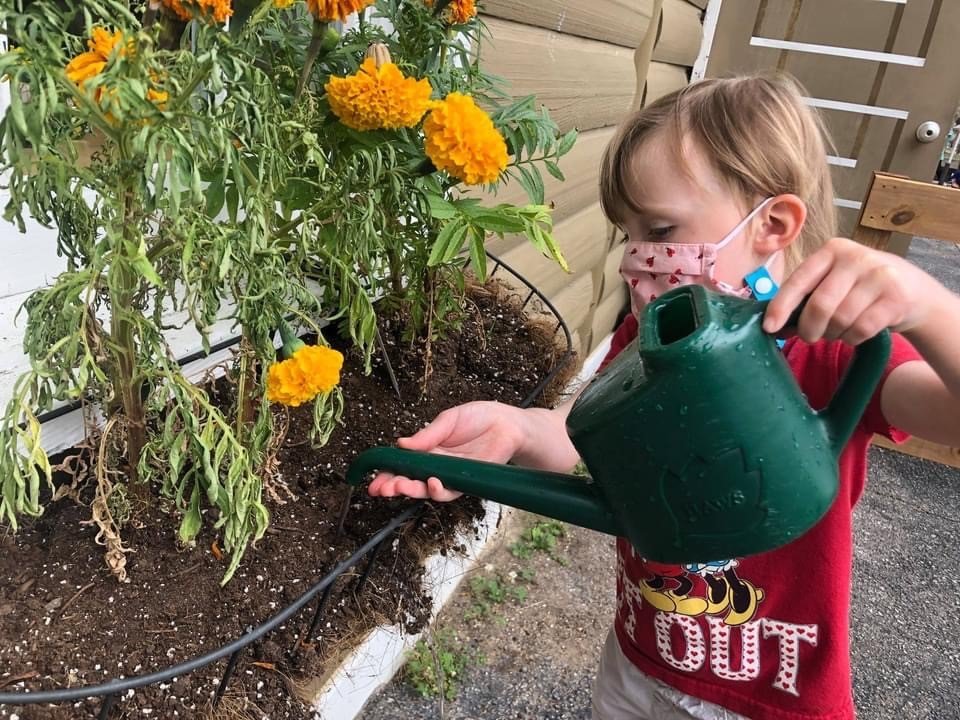
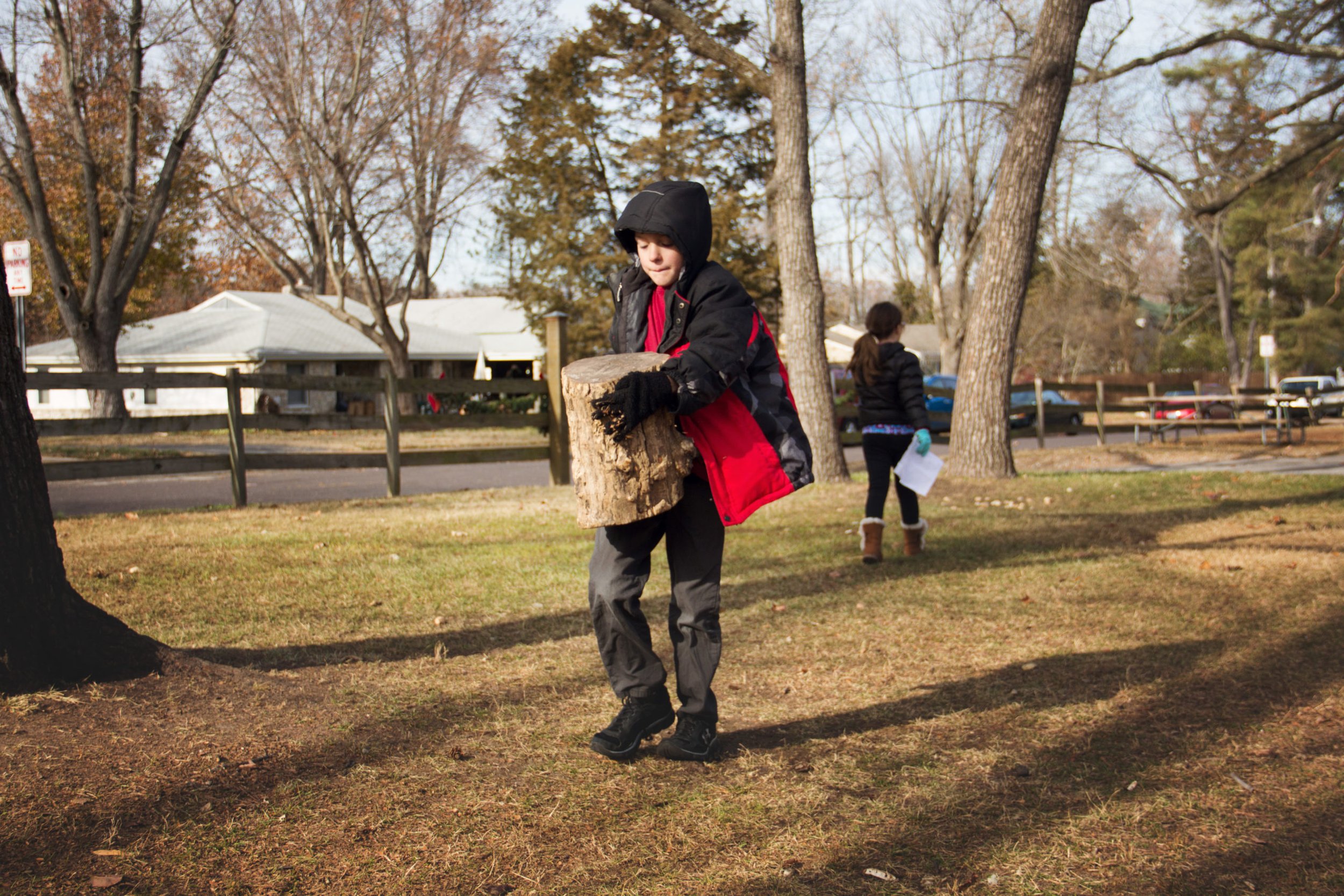 Which brings me back to the significance of independence-building tasks like vegetable cutting in a Montessori classroom. When young children are allowed to practice and eventually master tasks independently, they are learning that they are capable. They are becoming competent. And each time they master a task on their own, they gain confidence and are motivated to keep trying at new things, to keep learning. Their competence grows and feeds their confidence. Their confidence grows and keeps them motivated. It's a virtuous cycle.So, it's not about the knife... or at least, not only about the knife. There are fine motor skills and spatial senses at work when a child learns vegetable cutting. In fact, all of the independence-building tasks and activities in a Montessori environment come with added benefits like the development of a writing grasp and hand-eye coordination or the opportunities to concentrate and practice grace and courtesy. But the real gift of Montessori is that children are allowed to complete these tasks themselves—they are told that they can do it.
Which brings me back to the significance of independence-building tasks like vegetable cutting in a Montessori classroom. When young children are allowed to practice and eventually master tasks independently, they are learning that they are capable. They are becoming competent. And each time they master a task on their own, they gain confidence and are motivated to keep trying at new things, to keep learning. Their competence grows and feeds their confidence. Their confidence grows and keeps them motivated. It's a virtuous cycle.So, it's not about the knife... or at least, not only about the knife. There are fine motor skills and spatial senses at work when a child learns vegetable cutting. In fact, all of the independence-building tasks and activities in a Montessori environment come with added benefits like the development of a writing grasp and hand-eye coordination or the opportunities to concentrate and practice grace and courtesy. But the real gift of Montessori is that children are allowed to complete these tasks themselves—they are told that they can do it.
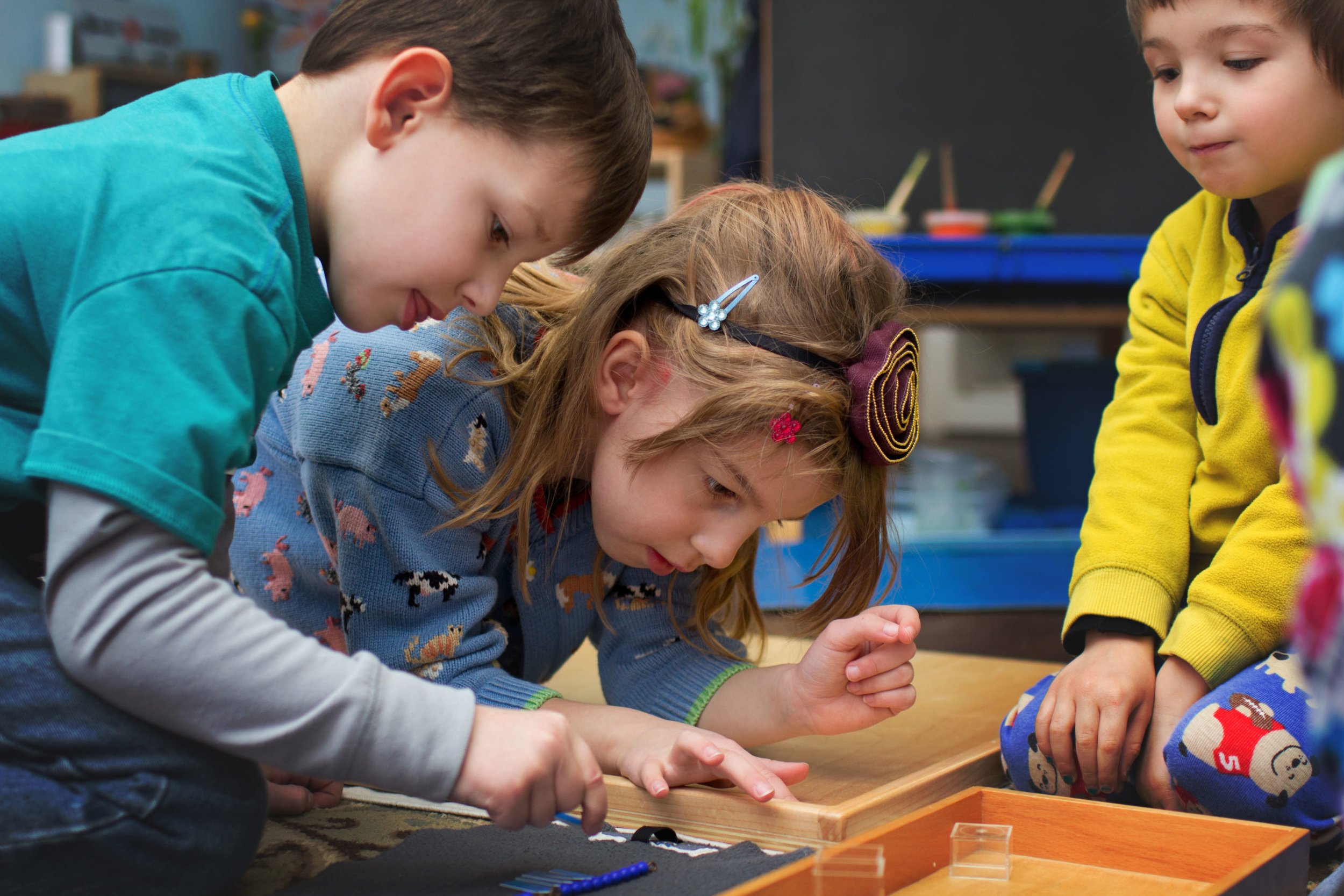 The value of independence is introduced in the Young Children's Community and Children's House with Practical Life activities but it doesn't stop there. It is encouraged and fostered throughout the Montessori curricula. Each and every lesson, at every level, is given with the goal that the child will ultimately be able to master the work on their own. From zipping a jacket to mastering long division, our guides teach our children how to do the work themselves. It is part of their certification as AMI guides to study the developmental stages of children, to know what children are truly capable of and how to help get them there.
The value of independence is introduced in the Young Children's Community and Children's House with Practical Life activities but it doesn't stop there. It is encouraged and fostered throughout the Montessori curricula. Each and every lesson, at every level, is given with the goal that the child will ultimately be able to master the work on their own. From zipping a jacket to mastering long division, our guides teach our children how to do the work themselves. It is part of their certification as AMI guides to study the developmental stages of children, to know what children are truly capable of and how to help get them there.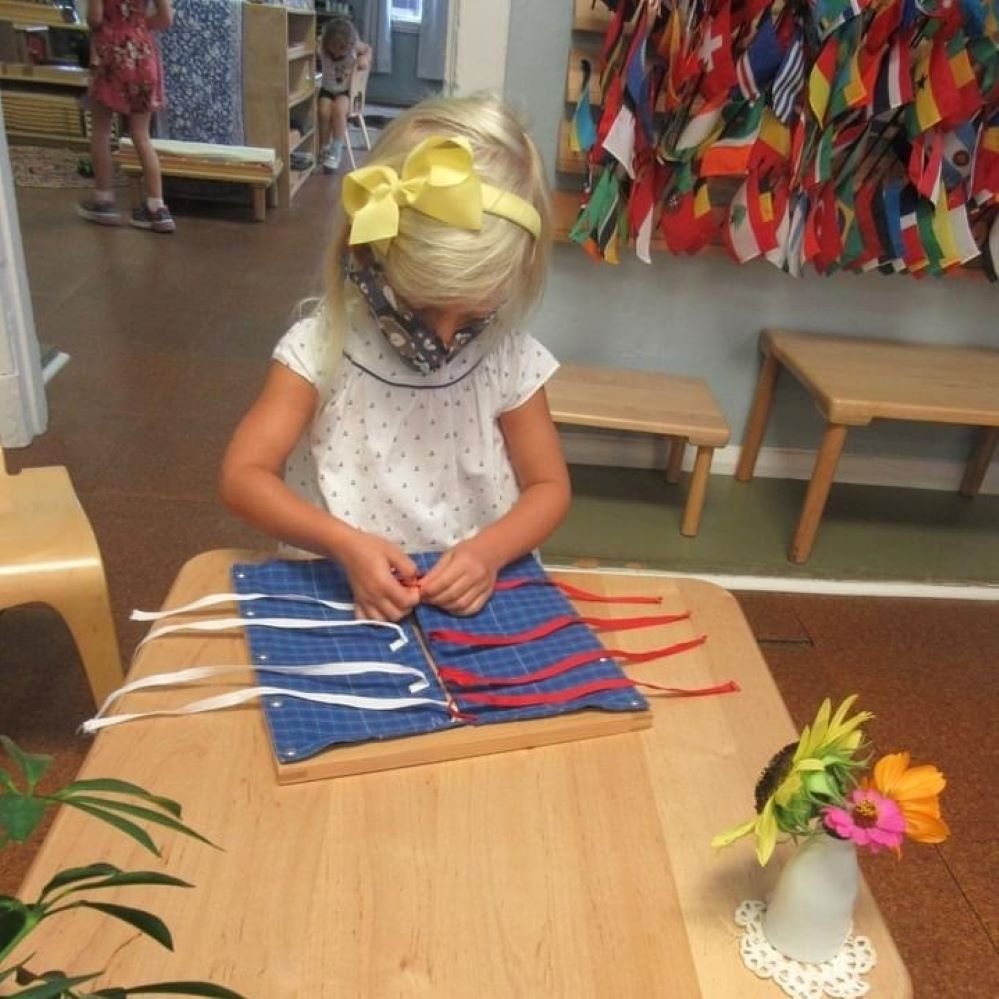 So does this mean that the adults in a Montessori environment are never helping children? Not at all. Guides and assistants are in the environments modeling and teaching not only academic lessons, but also social behaviors and even table manners. But they are also doing something that a lot of folks forget to do. They are watching and waiting.
So does this mean that the adults in a Montessori environment are never helping children? Not at all. Guides and assistants are in the environments modeling and teaching not only academic lessons, but also social behaviors and even table manners. But they are also doing something that a lot of folks forget to do. They are watching and waiting.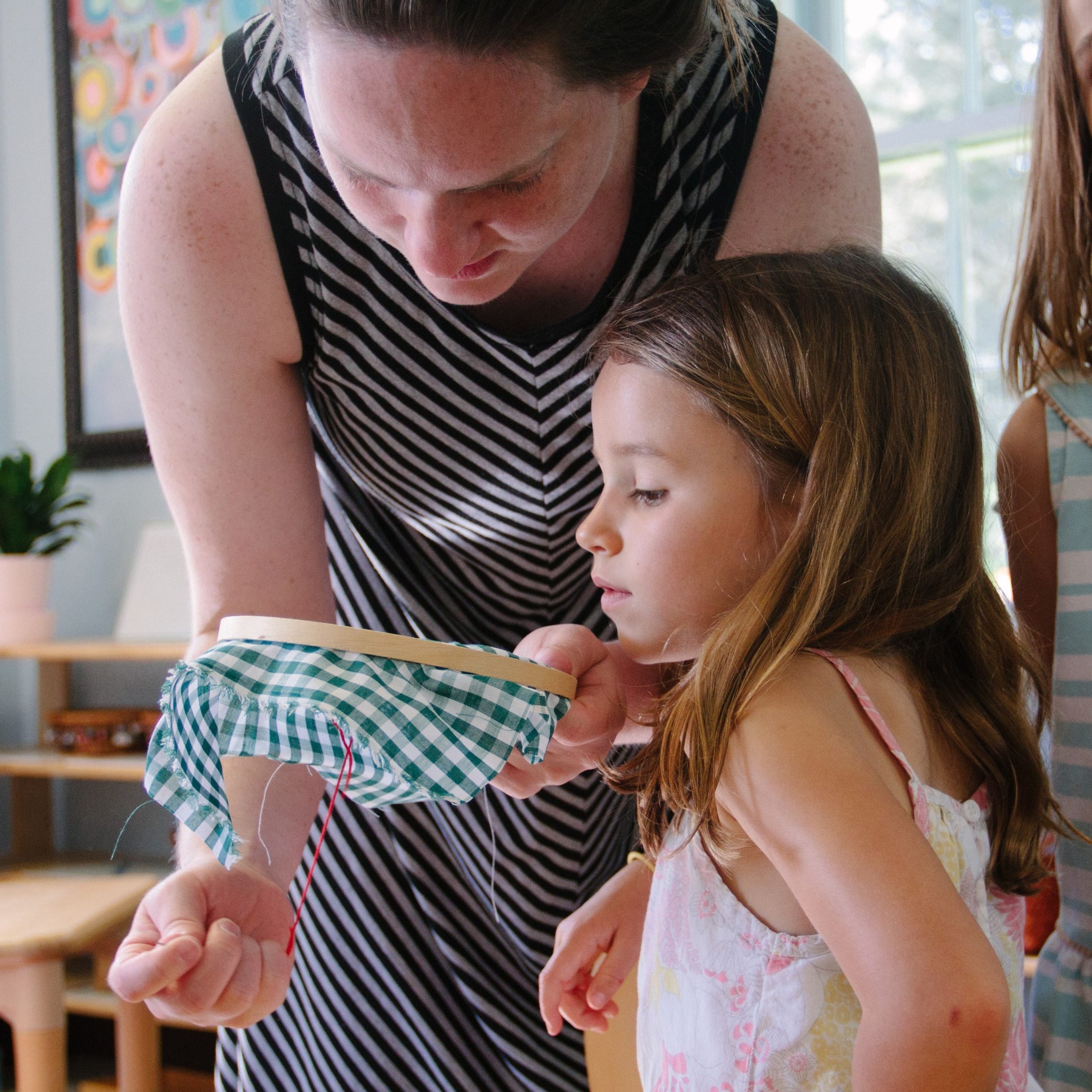
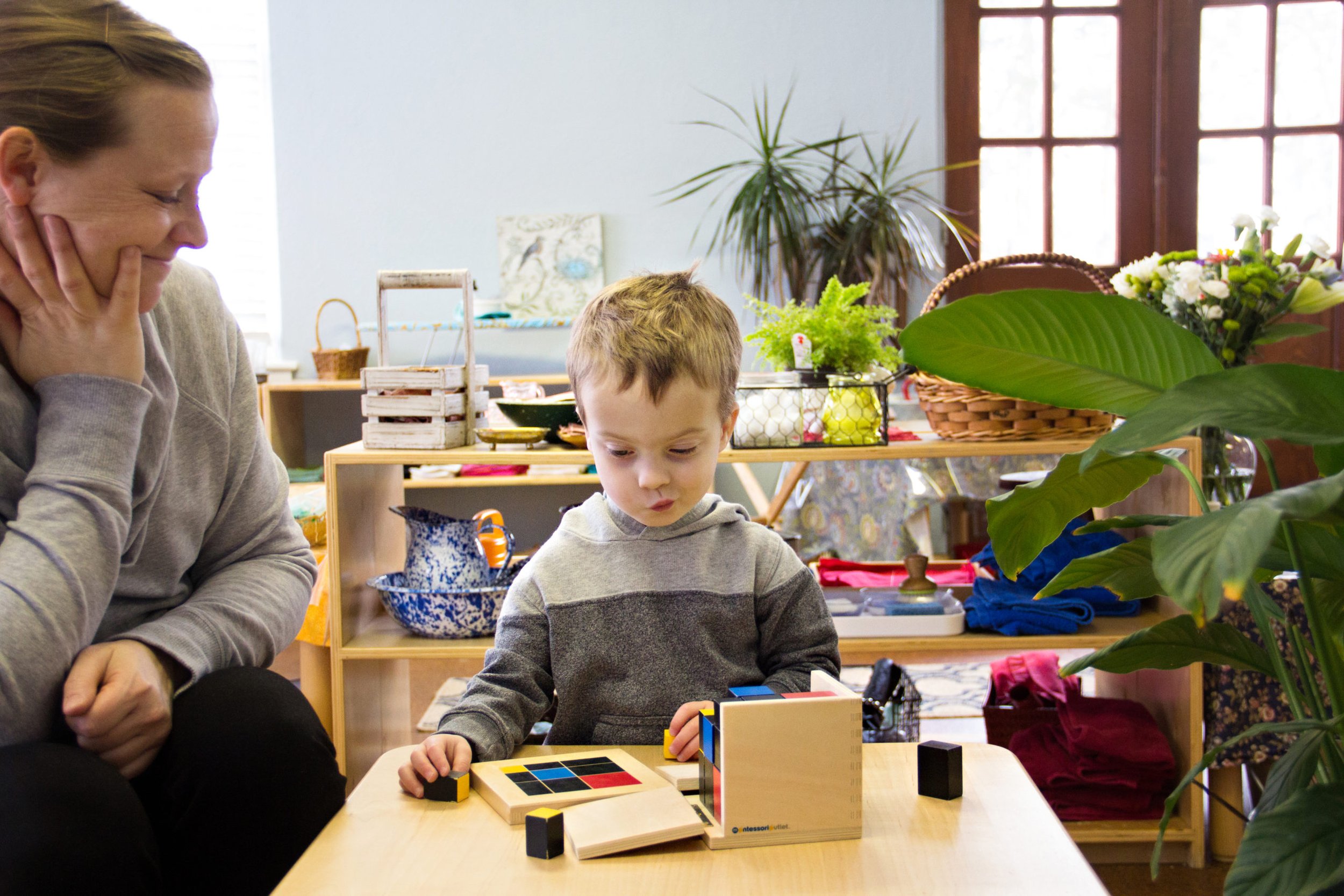 Daniel, from "How to Become Batman," talks about this. As an adult he teaches blind children and their families how to raise their expectations of what's possible. The biggest obstacle, he says, is that people who mean well "will jump in half a second too soon, and they rob the [child] from that learning moment." That half-second is exactly what Montessori allows to play out—the opportunity to learn.
Daniel, from "How to Become Batman," talks about this. As an adult he teaches blind children and their families how to raise their expectations of what's possible. The biggest obstacle, he says, is that people who mean well "will jump in half a second too soon, and they rob the [child] from that learning moment." That half-second is exactly what Montessori allows to play out—the opportunity to learn.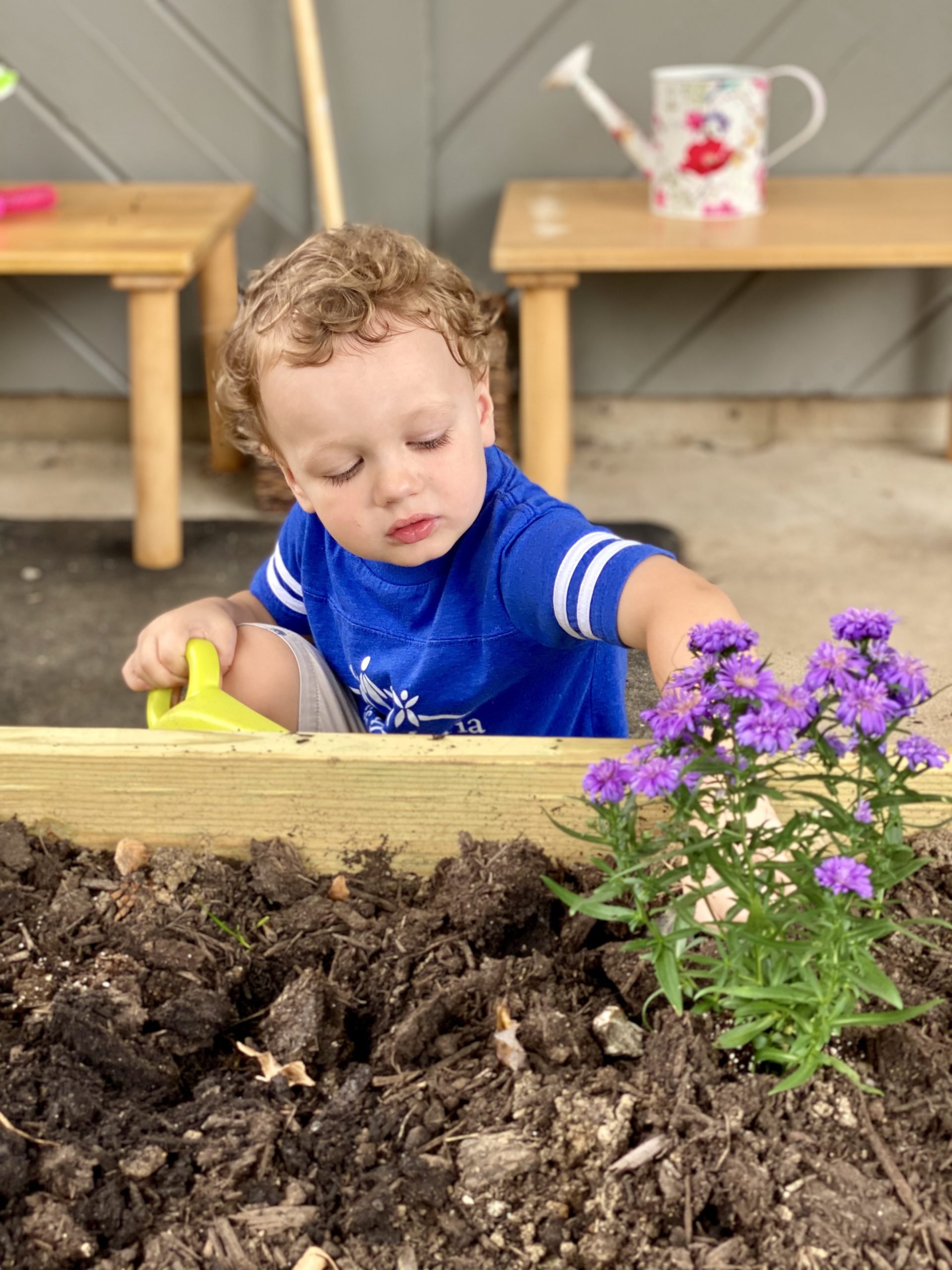
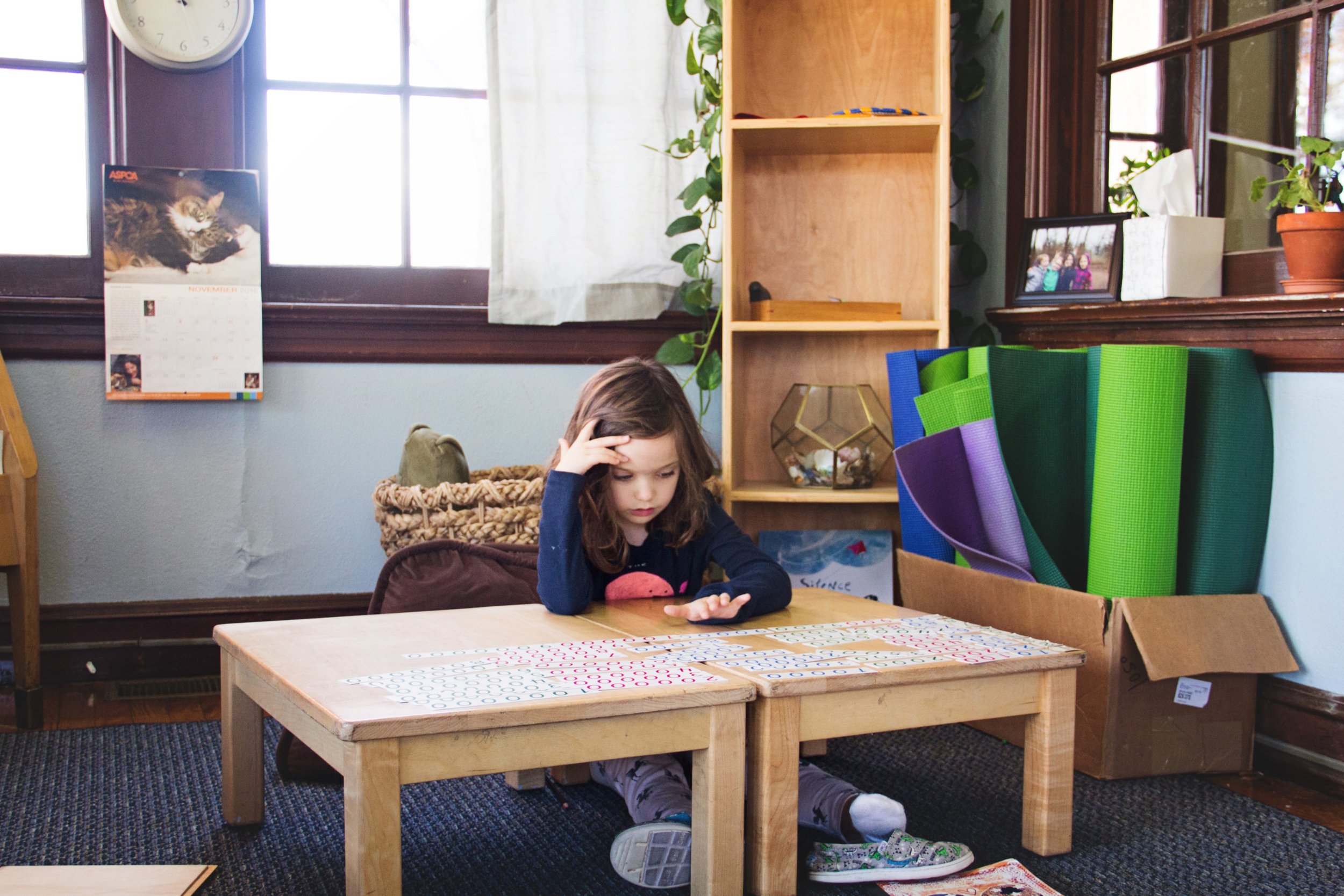 What is so great about Montessori is that it does not underestimate what children can do. Of course there are limits based on age, size, verbal readiness and other developmental factors. But the adults in Montessori environments recognize those limits as well as what is truly possible within those limits. And we consciously raise our expectations to meet those possibilities.
What is so great about Montessori is that it does not underestimate what children can do. Of course there are limits based on age, size, verbal readiness and other developmental factors. But the adults in Montessori environments recognize those limits as well as what is truly possible within those limits. And we consciously raise our expectations to meet those possibilities.
Never help a child with a task at which he feels he can succeed. Dr. Maria Montessori
Because our children are never told that they cannot dress themselves, do Egyptian multiplication, make their own lunches, work out problems with friends, use big words, fold laundry, write reports, take care of pets, read novels, dissect squid, carry their own belongings, keep their workspaces clean, write in cursive, identify types of leaves and animals, know the order of operations, write a play, compose a song... because our children are never told they cannot do these things, they continue to try, practice and to learn. And they build confidence. Montessori teaches them that they are capable people, that they can do anything.
References and Resources
The Absorbent Mind by Dr. Maria MontessoriExpect the Best: On the Power of ExpectationHow to Become Batman on InvisibiliaIndependence: the Birthplace of Self-EsteemPygmalion Effect: How Expectation Shape Behaviour For Better or WorseResearch every teacher should know: setting expectationsThank you to Melinda Smith, Carrie Tallon, Jessie Braud and Heather Steinman for the photos.
